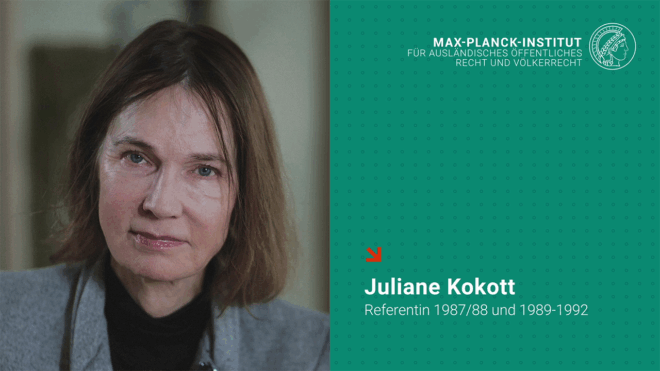“You don’t always have to be right immediately,” reflects Juliane Kokott—advice that feels radical in today’s academic climate. While today’s emerging scholars often feel compelled to retreat from intellectual risk, Kokott’s path from Max Planck researcher to Europe’s longest-serving Advocate General reveals what intellectual courage actually looks like.
Her story begins in 1980s Heidelberg, where academic debates were “crushing” affairs that could end careers. Yet Kokott learned to separate personal worth from intellectual criticism. “If someone thinks the view is wrong, you just discuss it with the next person,” she explains. Her approach of waiting, reflecting, and returning with stronger arguments contrasts sharply with today’s publish-or-perish anxiety and social media pile-ons, so often felt as oppressive burdens by today’s younger scholars.
From handwritten manuscripts to digital courtrooms, from being one of two women among thirty men to shaping European law through 500-plus judicial opinions, Kokott’s career shows that intellectual resilience isn’t about armor—it’s about staying curious when others quit.
In conversation with MPIL’s Robert Stendel and Philipp Glahé, Kokott reveals precious, seemingly forgotten techniques of academic survival and why the next generation desperately needs to relearn them.
About Juliane Kokott
Juliane Kokott has carved an uncommon path from Heidelberg lecture halls to the bench of Europe’s highest court. A double-doctorate scholar with credentials from Harvard and Washington, she honed her comparative legal instincts during pivotal years at the Max Planck Institute for International Law, where she navigated country departments spanning Inter-American human rights to European Community law while becoming one of the first women to habilitate there.
She traded ivory-tower contemplation for frontline legal impact in 2003, when she became Advocate General at the Court of Justice of the European Union—only the third woman ever to hold the post and now its longest-serving voice. Her more than 500 influential opinions, spanning competition, tax and fundamental rights, are famed for crisp language and comparative depth rooted in her Max Planck training in empirical, cross-border legal analysis. Kokott balances scholarship—professorial stints across Germany and Switzerland, editorships and global tax projects—with a reputation for principled advocacy for gender equality. Colleagues call her the Court’s “comparative conscience,” a jurist who turns sprawling doctrine into pragmatic guidance for a rapidly integrating Europe.


